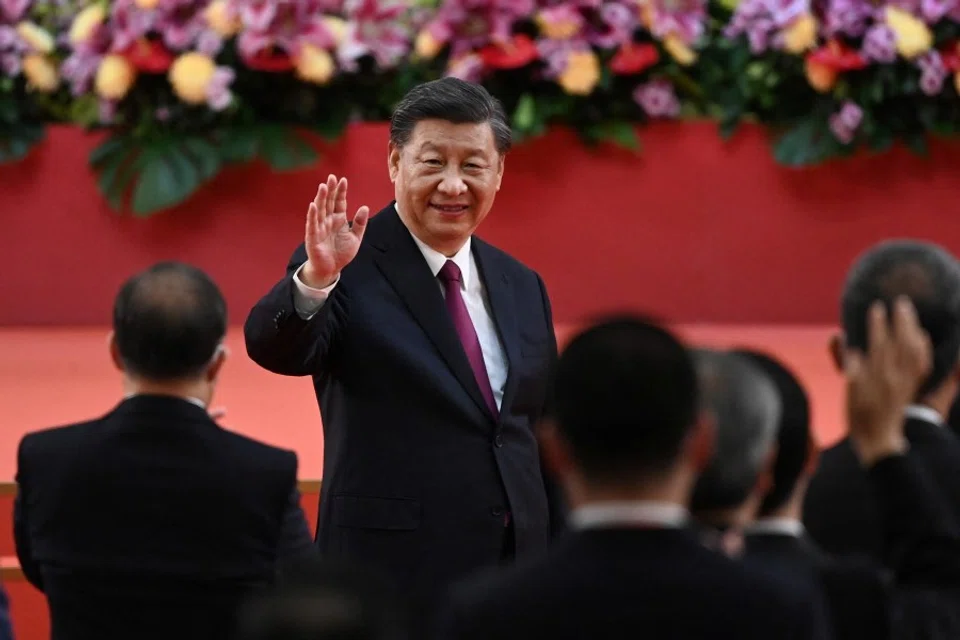Japanese academic: Ukraine crisis opportunity for China to restructure international order
Japanese academic Naoko Eto notes that China has been strengthening its diplomatic forays in the security realm to gain greater global influence amid the ongoing Covid pandemic and Ukraine war. The Global Security Initiative (GSI) launched in April is a major vehicle in this endeavour. While the security track will not be an easy route to take, President Xi's plans for restructuring the international order with developing countries' buy-in bears watching.

The Ukraine crisis has led China to escalate its diplomatic offensive in order to compete with the US. Chinese diplomatic overtures since April, aimed at expanding its influence in both the economic and security spheres, can be understood through the lens of the global governance of the Xi Jinping administration, whose keywords are "three initiatives" and a "community with a shared future for mankind".
The three initiatives of the Belt and Road Initiative (BRI), the Global Development Initiative (GDI) and the Global Security Initiative (GSI), advanced by President Xi himself in speeches at international conferences, are branded in China as Xi Jinping's diplomatic strategy. The three initiatives work in tandem to achieve a "community with a shared future for mankind", as advocated by Xi since 2013.
Of the three initiatives, the GSI is the newest vehicle for Chinese diplomacy. Xi presented the GSI at the opening ceremony of the Boao Forum for Asia on 21 April. Stating that "security is the precondition for development", he alluded to the fact that China would participate in global governance in the security sphere as well as the economic sphere by promoting the GSI in parallel with the GDI.
According to an article by State Councilor and Foreign Minister Wang Yi entitled "Acting on the Global Security Initiative to Safeguard World Peace and Tranquility", published in the People's Daily on 24 April, the GSI was precipitated by the need to build a new regional security architecture in Asia following the coronavirus pandemic and the Ukraine crisis.
...this series of diplomatic offensives show China's intention of expanding its influence in matters of security, in a significant shift from its previous strategy of manoeuvring for influence through economic cooperation.

The first inkling of the GSI being used as a vehicle for Chinese diplomacy was seen in the China-Solomon Islands security pact concluded in April. The concept also appeared in the China-Pacific Island Countries Five-Year Action Plan on Common Development (2022-2026) put forward at an online meeting with ten Pacific nations on 30 May during Minister Wang Yi's visit to eight Pacific Island countries from the end of May.
Wang sought to strengthen security cooperation through the creation of a multilateral framework that would enable China to be involved in maintaining regional security. While no agreement on a cooperative framework was reached, this series of diplomatic offensives show China's intention of expanding its influence in matters of security, in a significant shift from its previous strategy of manoeuvring for influence through economic cooperation.
...since June, Chinese diplomacy appears to have swung back to a policy of focusing on the Global Development Initiative.
Swinging from security to economy
However, since June, Chinese diplomacy appears to have swung back to a policy of focusing on the GDI. This may be because China has come to recognise that a diplomatic offensive in the security sector is not easy. For the time being, its top priority will be to achieve a high "diplomatic performance" in the run-up to the 20th Party Congress of the Chinese Communist Party, due to take place in the fall.

On 20 June, the Center for International Knowledge on Development, a Chinese government think tank, released the Global Development Report. This is a policy proposal validating the United Nations Sustainable Development Goals (SDGs) as a component of the GDI.
...the Xi administration is exploiting the fluid international environment caused by the protracted Ukraine crisis to steadily advance its own roadmap for restructuring the international order...
Also, the adoption of the 14th BRICS Summit Beijing Declaration on 23 June exemplified the unity of BRICS and highlighted economic cooperation, including food security.
Chairing the High-level Dialogue on Global Development on 24 June attended by 18 nations online, President Xi outlined further economic cooperation, noting the need to"increase the representation and say of emerging countries and developing countries in international affairs, institutions and mechanisms".
In the past, the Xi administration has consistently emphasised the need for global governance reform. Consequently, the Xi administration is exploiting the fluid international environment caused by the protracted Ukraine crisis to steadily advance its own roadmap for restructuring the international order in a way that will gain the backing of developing nations. The fact that China's diplomatic strategy now extends to the security domain will be increasingly evident in its diplomatic stance going forward.





![[Photos] Fact versus fiction: The portrayal of WWII anti-Japanese martyrs in Taiwan](https://cassette.sphdigital.com.sg/image/thinkchina/3494f8bd481870f7c65b881fd21a3fd733f573f23232376e39c532a2c7593cbc)